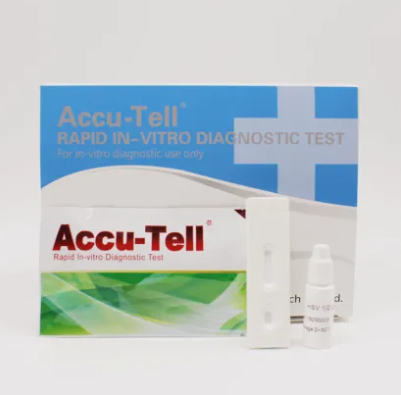HSV Rapid Test: A Swift Approach to Herpes Detection
Introduction
In the realm of medical diagnostics, advancements are continually being made to provide faster, more accurate, and more accessible testing solutions. One such innovation is the HSV rapid test, a valuable tool for the detection of herpes simplex virus infections. In this article, we'll explore the significance of HSV rapid tests, their benefits, and how they contribute to timely diagnosis and effective management.
Unveiling the Herpes Simplex Virus
Herpes simplex virus (HSV) is a common viral infection that affects millions of individuals globally. It manifests in two main forms: HSV-1, primarily associated with oral herpes, and HSV-2, typically linked to genital herpes. Both types can cause painful lesions, discomfort, and recurrent outbreaks.
The Importance of Rapid Testing
Rapid diagnostic tests have revolutionized medical practice by offering swift results, enabling prompt decision-making, and ensuring timely intervention. When it comes to herpes infections, early detection is crucial for several reasons:
Timely Treatment: Early identification allows for quicker initiation of antiviral treatment, reducing the severity and duration of symptoms.
Preventive Measures: Individuals with herpes can take precautions to prevent the transmission of the virus to others, including partners and newborns.
Emotional Well-being: Rapid testing provides peace of mind and helps alleviate the emotional distress associated with uncertainty.
Understanding HSV Rapid Tests
HSV rapid tests are designed to detect the presence of HSV antibodies in a patient's blood or other bodily fluids. These tests can be performed in a medical setting, a laboratory, or even at home, depending on the type of test. There are two main categories of HSV rapid tests:
1. Direct Antigen Detection Tests
These tests detect the viral antigens directly in the patient's sample, such as a swab from a lesion. They are particularly useful during active outbreaks and can provide results within a short period.
2. Serologic Tests
Serologic tests analyze blood samples to detect the presence of antibodies produced by the immune system in response to HSV infection. These tests are helpful for identifying past infections or asymptomatic carriers.
The Benefits of HSV Rapid Tests
1. Speedy Results
As the name suggests, the primary advantage of HSV rapid tests is their speed. Patients can receive their results within minutes to hours, allowing for immediate medical decisions if necessary.
2. Early Detection
Rapid testing facilitates early detection of herpes infections, enabling healthcare providers to initiate appropriate treatment and counseling promptly.
3. Convenience
Some HSV rapid tests are designed for home use, offering convenience and privacy to individuals who prefer to test in the comfort of their own space.
4. Preventive Measures
Timely diagnosis empowers individuals to take preventive measures, reducing the risk of transmitting the virus to others.
The Process of HSV Rapid Testing
The process of HSV rapid testing typically involves the following steps:
Sample Collection: Depending on the type of test, a sample is collected, such as a swab from a lesion or a blood sample.
Testing Process: The collected sample is then processed using the specific testing kit, which detects the presence of viral antigens or antibodies.
Result Interpretation: The test results are usually provided in a clear format, indicating whether the virus or antibodies are present.
Future of HSV Rapid Testing
As technology continues to advance, so will the accuracy and accessibility of HSV rapid tests. Research and development efforts are focused on enhancing the sensitivity of tests, improving ease of use, and ensuring cost-effectiveness for wider adoption.
Conclusion
The HSV rapid test represents a significant stride in medical diagnostics, especially for individuals affected by herpes simplex virus infections. By offering speedy results, early detection, and the ability to take preventive measures, these tests play a crucial role in effective disease management and public health efforts. As the medical community continues to embrace and refine rapid testing technologies, individuals can benefit from quicker diagnoses, more informed decisions, and ultimately, improved quality of life.




